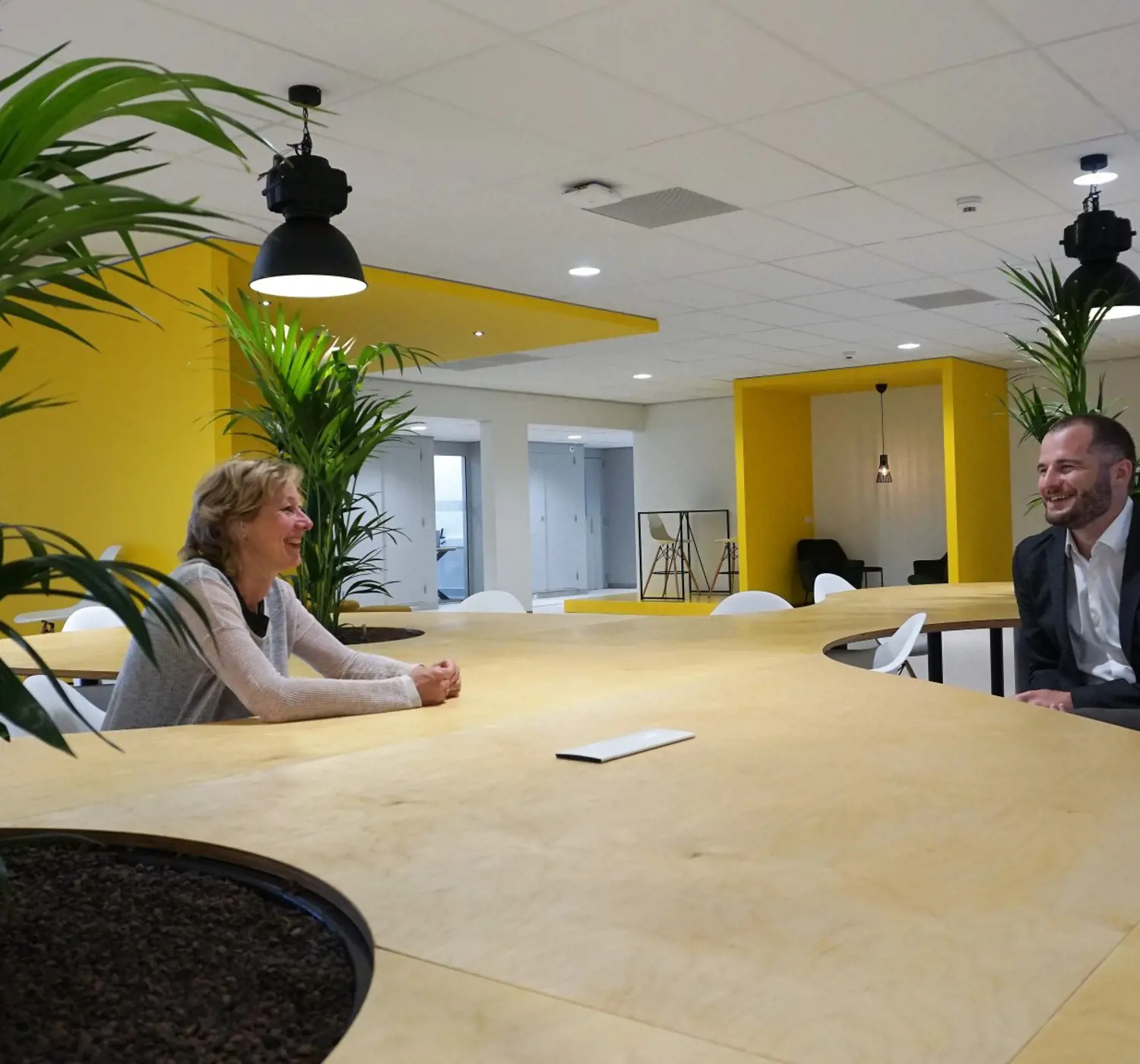06-07-2021
Carbon dioxide recycling company Deep Branch joins Planet B.io

Planet B.io is proud to announce that biotech company Deep Branch has joined the scale-up ecosystem on Biotech Campus Delft. Deep Branch, founded in the UK, is a perfect fit for Planet B.io with its cutting-edge CO2-to-protein fermentation technology. With this technology, Deep Branch addresses both the sustainability of animal farming and the reduction of carbon dioxide emissions, creating a scalable path for a sustainable protein generation process from a waste product.
Planet B.io’s managing director Cindy Gerhardt and CEO of Deep Branch Pete Rowe discussed the new partnership and how it will contribute to their success and the future of sustainable nutrition. The interview was led by Eline Reijmerink, communications manager for Planet B.io.
Can you tell us a bit about Deep Branch and what you do?
Pete Rowe: Sustainability is at the heart of what Deep Branch does. The first product we’re bringing to market is Proton™, a single-cell protein optimised for animal nutrition. Partnering with feed producers in aquaculture and poultry, Proton™ will provide a regular supply of price-competitive and nutritionally optimal bulk protein.
From a biotech perspective, the interesting thing about our proprietary gas fermentation process is that rather than using sugar, which is the main feedstock that is normally used, our microbes are fed carbon dioxide. We produce a protein that offers a comparable nutrient profile to fishmeal, but comes at a 90% smaller carbon footprint.
Can you tell us a bit more Why Deep Branch is such an interesting company to have here on Campus and here in The Netherlands?
Cindy Gerhardt: I firmly believe that biotechnology can create solutions to making our economy more sustainable. At Planet B.io, we are creating a biotechnology ecosystem for which we need many high-potential companies together. These companies can grow faster together than alone by using the synergies created by collaboration.
Deep Branch is a company that tackles both the climate crisis and an agri-food problem at the same time by using an innovative fermentation technology. Their concept has the potential to be truly impactful at industrial scale, which is at the core of what we aim for at Planet B.io.
Deep Branch recently decided to expand into the Netherlands to explore the Dutch biotech ecosystem from close by. Can you tell us about what triggered that decision?
Pete Rowe: The Netherlands has a world-leading ecosystem both in terms of scaling process technologies and agricultural innovation. Being in Delft allows us to tap into the pool of talent and process development expertise associated with institutions like TU Delft and DSM.
The country’s sustainability movement has gained a strong foothold in shaping public discourse, and while it’s necessary to provide ideas, energy, and pressure to respond to the climate crisis, we believe that technologies like ours can truly drive change and enhance the overall economy toward sustainable consumption.
What do you expect from being located here at Planet B.io?
Pete Rowe: Planet B.io has the potential to create a critical mass of impactful companies with a shared technological expertise. I strongly believe in ecosystem-level innovation to enable our company to thrive. Silos of knowledge can lock out opportunities and with collaborations, shared resources, and leveraging the unique opportunities Planet B.io provides, we can grow our company in an accelerated but strategic way.
What can Planet B.io offer Deep Branch that other ecosystems can’t offer?
Cindy Gerhardt: In the past, large companies have dominated industrial biotechnology. The sizeable capital expenditure required for biotechnological processes makes it difficult for new, smaller players to enter the market. However, with a new generation of purpose-driven biotechnologists being educated about high-impact technological developments, we see more space for startups in industrial biotechnology. Planet B.io is a fertile ground for smaller companies to scale up and reach maturity.
It's my hope that companies here are going to grow faster than in another location because they find everything that they need in the ecosystem: investors, employees, infrastructure, and most of all, everything within the scope of relevant biotech knowledge. Creating truly impactful solutions at industrial scale requires not only entrepreneurship and technological developments, but needs to cover the complete value chains and also involve (local) authorities and infrastructure. That is enormously complicated to do for a small company on its own.
What will Deep Branch look like five years from now?
Pete Rowe: In five years’ time, we plan to have built our first commercial facility. By that point, we should be producing over 100,000 tonnes of Proton™ per year. We view our technology as a platform that we will leverage to not only address new markets with Proton™—beyond animal feed to human food and more—but also expand our product line to more CO2-based products. The latter truly is the most exciting question: what else can we use the platform to produce next? Proton™ feed protein is only the beginning.
